Knowing how to build a bomb shelter can give you peace of mind, especially during these uncertain times when the world is on the brink of war. It can protect you and your loved ones from a bomb blast or nuclear explosion.
Keep reading to learn how to build a bomb shelter.
RELATED: How To Survive A Nuclear Bomb | 7 Things You Need to Know
How to Build a Bomb Shelter | a Step-By-Step Guide
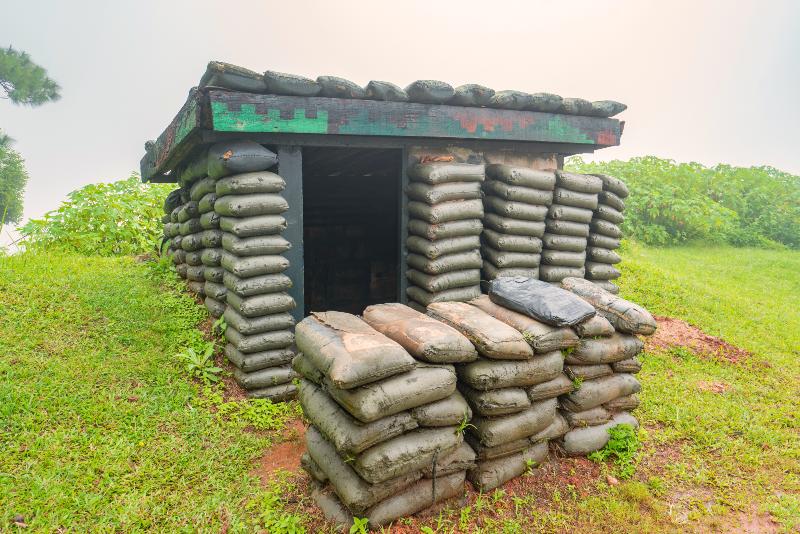
1. Select a Location
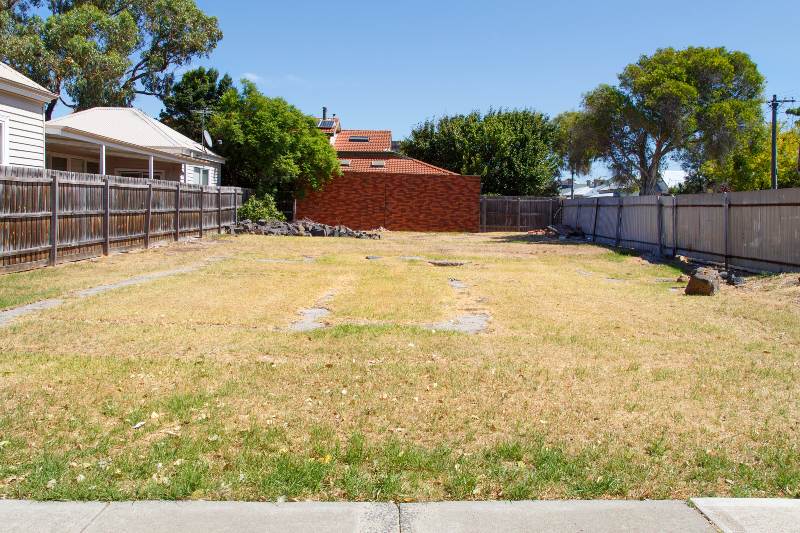
Keep in mind to consider these factors when choosing a location to build your bomb shelter:
- Water: Do not choose a downhill place or at the base of a steep slope. Additionally, ensure that you are far from a large body of water to avoid flooding.
- Nearby structures: Select a place that is not near any flammable structures. If a nuclear weapon detonates, it can cause systems to catch fire, and you do not want to be near a burning structure. In addition, avoid a location surrounded by vegetation and trees, as cutting their roots can be harmful to the local geography.
- Utility lines: Avoid utility lines in your yard.
- Stability: You must build your bomb shelter on solid ground.
2. Have a Blueprint

After choosing a location, measure the area and design your blueprint. A blueprint will help you build a stable and adequate bomb shelter, just like constructing a house.
You have three options on how to develop a bomb shelter plan:
- Research online.
- Hire an architect or a drafter.
- Sketch your design.
The size of your bomb shelter depends on your preference. But to give you an idea, a basic bomb shelter measuring 10 x 10 x 10 feet can fit four people.
Essentially, think of it as a small house and maximize its space. Ensure that you plan for your safety, security, efficiency, and comfort.
3. Prepare Your Materials
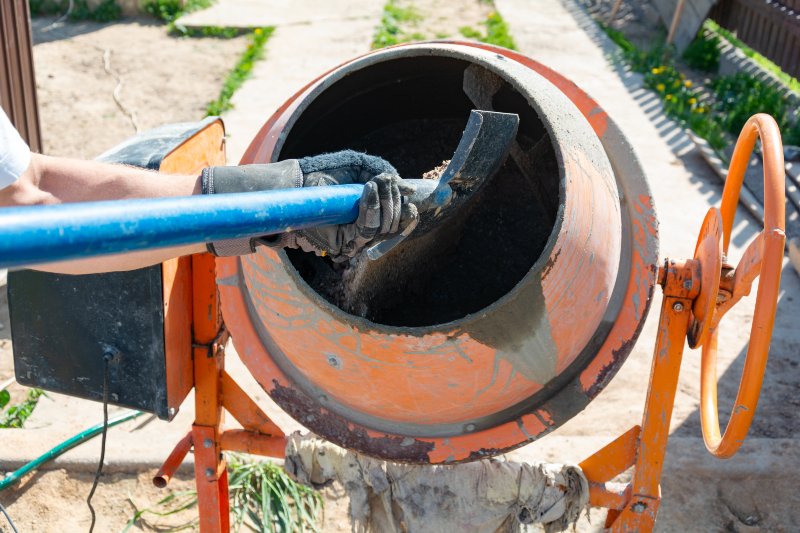
Be sure that you are building your bomb shelter out of materials that are sturdy enough and will not fall to pieces.
Some of the most common materials you may use are:
- Concrete: This material is relatively affordable and can withstand high loads. What’s more, self-healing concrete can last for 200 years!
- Metal sheet: This material is solid and water-resistant. However, it can be pricey, and you would need to add insulation when using this material.
- Bricks: This type of block is inexpensive, an excellent insulator, and weatherproof. You may also add color and style to this material.
4. Clear the Site for Construction
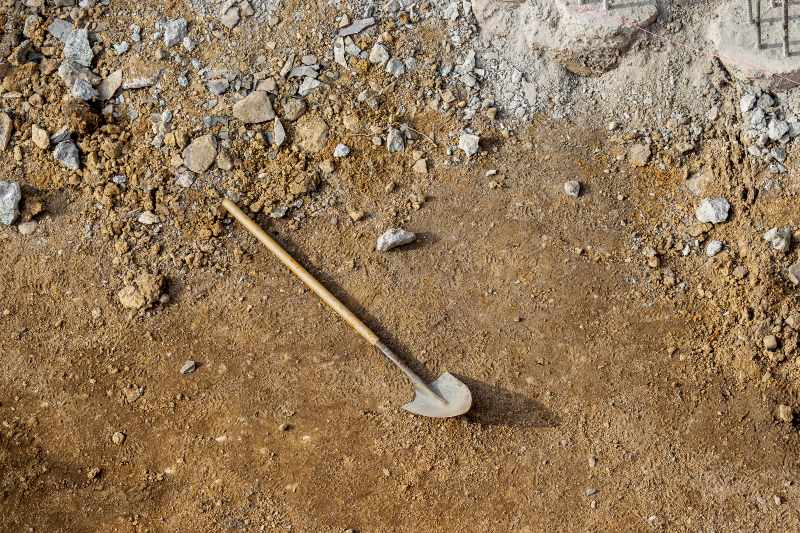
Plant garden stakes into the ground to outline the perimeter of your bomb shelter. Afterward, use tools to dig up rocks and other waste in the area.
But, if using axes and shovels is laborious and time-consuming, you may use a backhoe instead to make your work faster. This alternative can be costly, but it can speed up the digging process.
Clear the land around 10 feet beyond the perimeter of your shelter so you would have enough space to work with. In addition, this prevents the dirt from falling back into the ground.
5. Start Digging

When you are about to excavate, use the cut-and-cover method – this is how subways are built underground.
In this technique, you dig a trench, build trench support, create your bomb shelter, then cover it.
However, before you start digging, keep in mind that this procedure is one of the most dangerous construction jobs. So practice trench excavation safety by installing support systems.
The three most common types of protective systems are:
- shielding
- shoring
- sloping
Excavate deep enough to protect you from disasters, blast waves, and radiation, but not too deep that you might trap yourself inside your bomb shelter.
6. Create an Emergency Exit
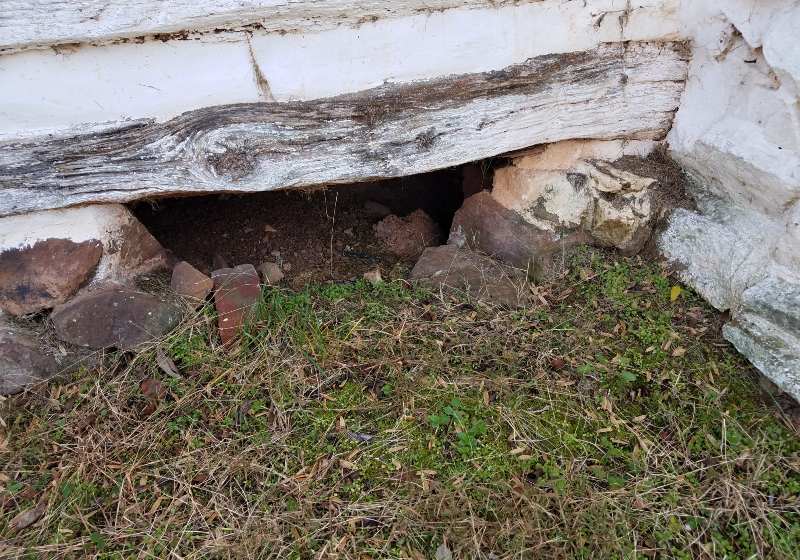
Ensure to create an emergency exit in your bomb shelter. This exit must be on the excavation side and opposite the main Entryway.
This particular exit will not only allow for faster evacuation but will also provide additional ventilation.
Dig a crawl space around two feet wide and three and a half feet deep below the soil’s surface. This crawl space must have a small trench at its end to connect it to the outside world.
7. Create the Main Entrance
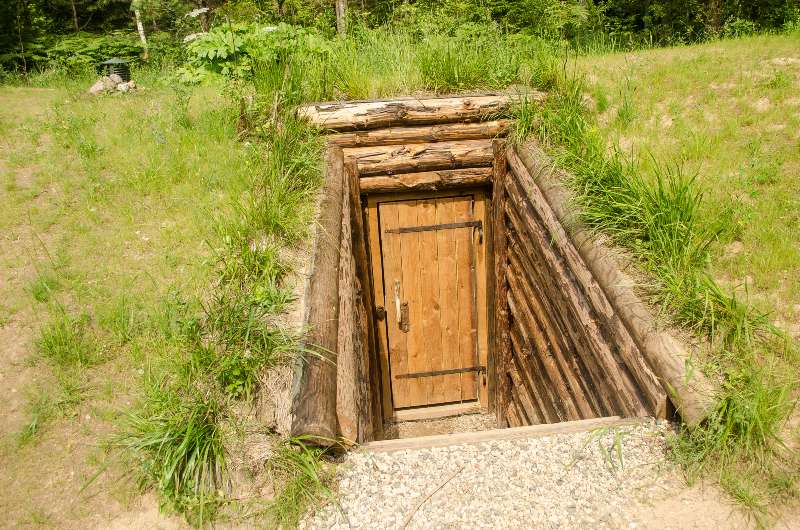
After creating your bomb shelter’s emergency exit, it is now time for you to dig your main Entryway.
Construct the main entrance the same way you created your emergency exit but on the opposite end. You can make it wider so you can quickly enter your shelter. Ensure that it is below ground.
8. Build the Roof
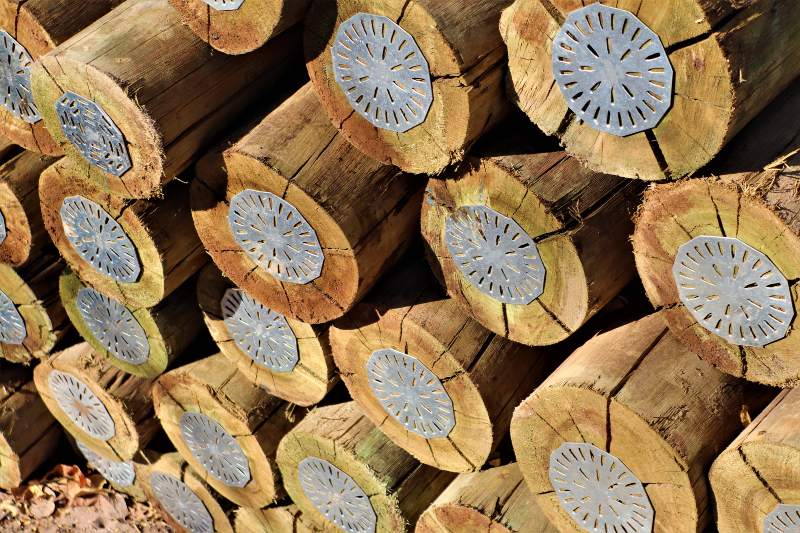
The next step on building a bomb shelter is to put wooden roofing poles above your trench. These poles are lengthy, uncut pieces of timber that you can find in a home improvement store or lumberyard.
The roofing poles must extend on each side of your trench to prevent bomb shelter collapse.
For instance, if your trench is five feet wide, your poles should measure nine feet.
Then, assemble the side of the poles by the side over your trench, minimizing the gaps.
RELATED: Putin is Using Bomb-Sniffing Rats to Fight ISIS
9. Add Roof to the Entryway
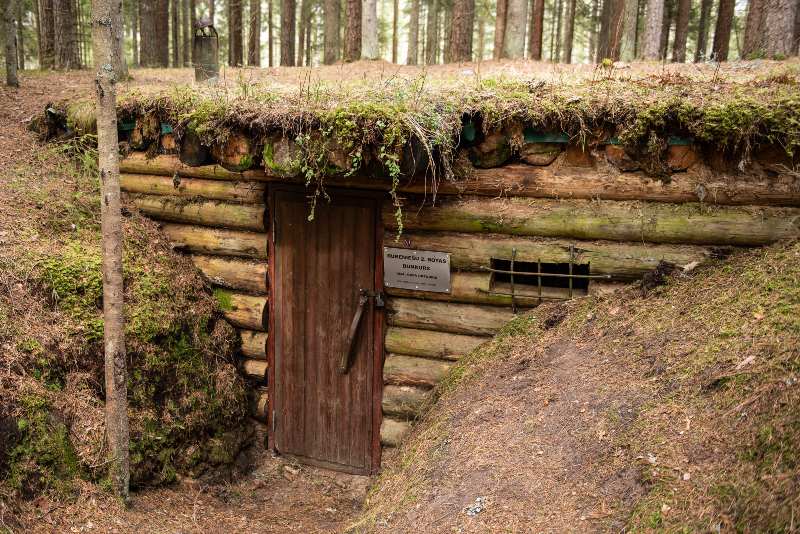
Pile up some poles in front of the entrance. These poles will help prevent dirt from entering your bomb shelter.
Put some poles between your trench and the edge of your Entryway. Tie these wooden roofing poles together using a rope or wire.
Afterward, tie them to the poles that you used as the Roof of your bomb shelter.
10. Protect the Logs
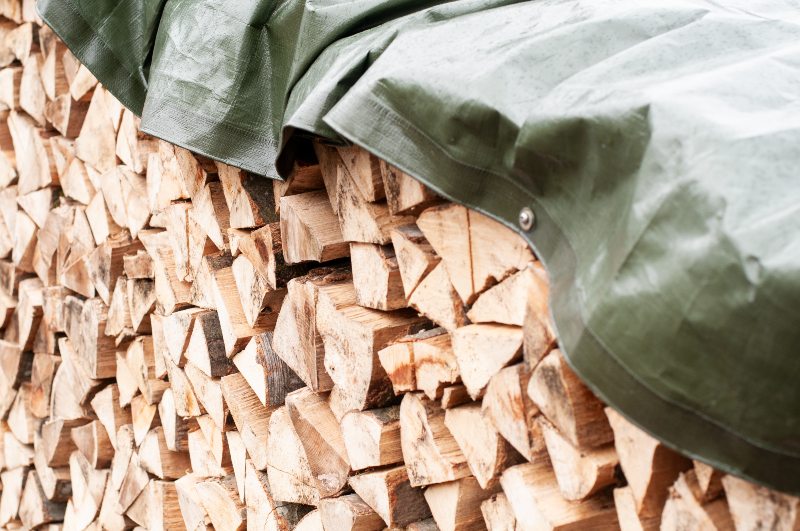
Waterproof your wooden roofing poles by adding a layer of any plastic material over them. Remember to cover all gaps between the poles to keep water and dirt from falling into your bomb shelter.
You may use either a big tarp or several small tarps that can cover your whole trench.
11. Cover up the Logs
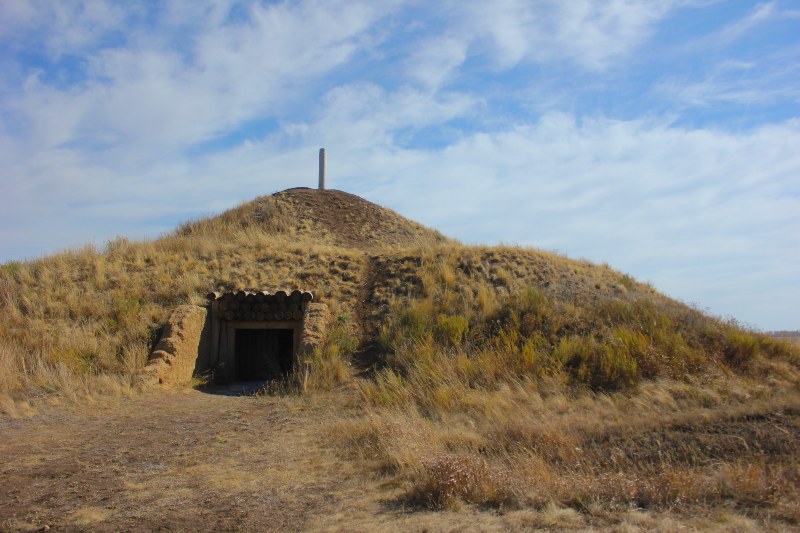
After waterproofing your poles, cover them with an earth dome.
Move your excavated dirt and pile it up on top of your logs, shaping it into a round mound. This will make your bomb shelter roof more firm and solid.
Make the dome deep enough so you can be fully protected from radiation. You may also put another tarp over the dome, then pile up more dirt on it to make its walls thicker.
12. Set Up a Ventilation Pump

Put a ventilation pump near your emergency exit to keep the air in your bomb shelter clean. The pump should have a manual or hand-operated option so you can operate it in case of an emergency.
Place its filter on the floor, then run its pipe along your crawl space. The pipe should measure around 36 inches tall and 20 inches wide.
13. Install a Toilet
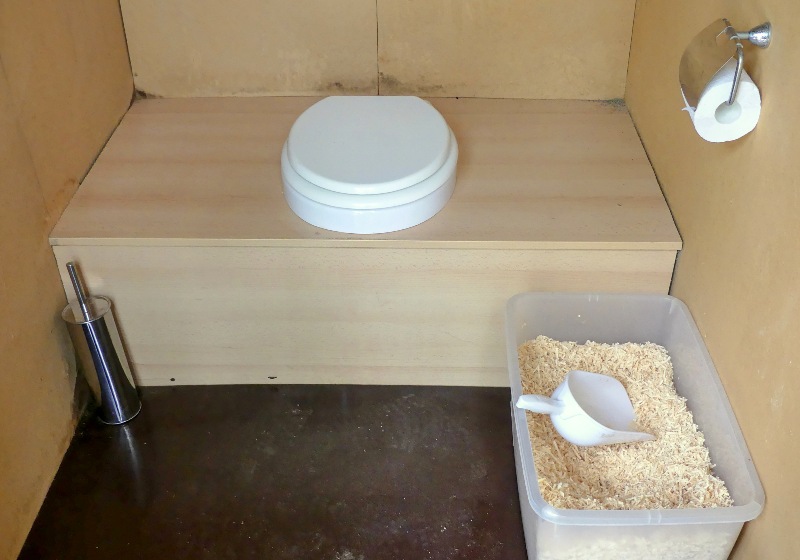
In another part of your bomb shelter, create your toilet. You may opt for a composting toilet for efficiency.
However, remember to install another ventilation pump for your toilet. With this, you may install your toilet near the exit far from your sleeping area.
Additionally, keep in mind that bomb shelters typically do not have running water. So if you want clean, running water, you may install tanks, filters, and pipes. However, this can be expensive and elaborate.
14. Build Furniture
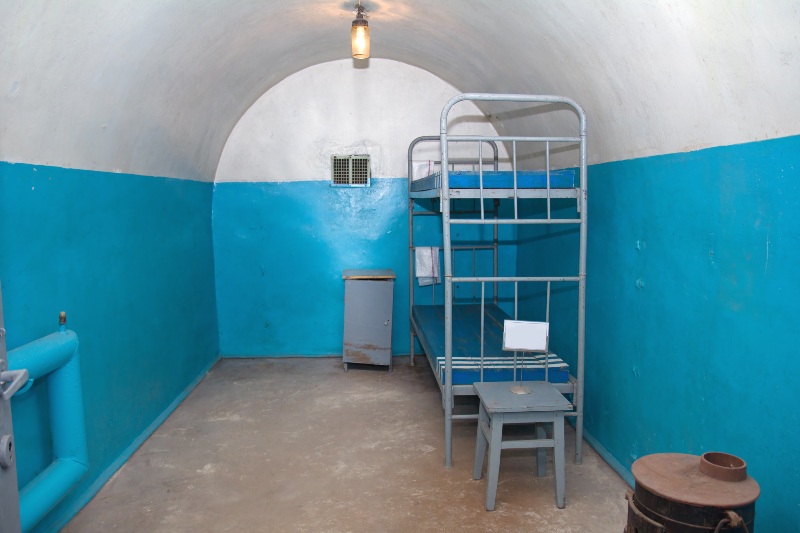
In a bomb shelter, you do not need to have oversized furniture. So now is your chance to practice your creativity!
For instance, you may use a hammock as your bed. Just loop strong ropes around the ceiling poles to hang your hammock. Alternatively, you may stack blankets or pack together pine needles for quick and inexpensive makeshift bedding.
15. Keep Stocks of Your Daily Necessities
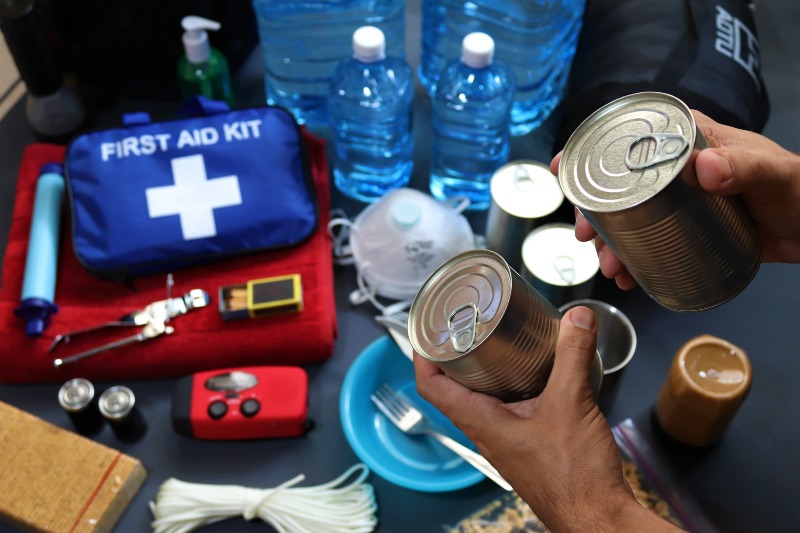
Since you will be spending some time in your bomb shelter in case of nuclear fallout, you must have a food and water supply that can last for at least two weeks.
Pack dry, non-perishable foods that are easy to prepare, such as:
- canned/dried meats, beans, soup, fruits, and vegetables
- protein bars
- nuts/seeds
- dry and non-dairy milk
- grains
- peanut butter
You may also want to prepare a microwave or a portable butane stove in your bomb shelter. In addition, you may want to stock candles and a pot to serve as your emergency cooking solution in case of a power outage.
Furthermore, bring extra clothes, a first-aid kit, and your medications.
Check out this video by Riddle to see what could happen if nuclear warfare breaks out:
A bomb shelter can help you prepare for any eventuality–be it an economic collapse, natural disaster, World War 3, or nuclear attack.
However, a bomb shelter tends to be expensive. Fortunately, you can create your very own that can meet all your needs!
Just follow these step-by-step instructions on how to build a bomb shelter so you can have a liveable environment if worse comes to worst.
In what other ways can we survive a nuclear attack? Please share your survival tips with us in the comments section below!
Up Next:
Don’t forget to stay connected with us on Facebook, Twitter, Pinterest, and Instagram!



![Bartering To Survive With Creek Stewart [PODCAST] Bartering To Survive With Creek Stewart [PODCAST]](https://survivalcove.com/wp-content/uploads/2021/09/The-survival-show-podcast-banner-370x297.jpg)
























